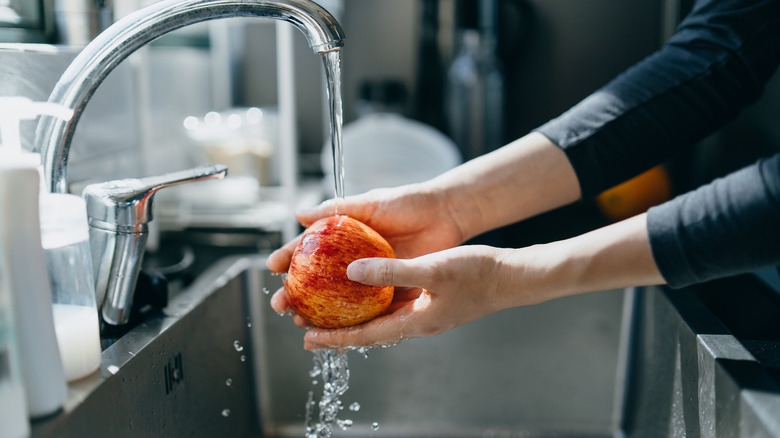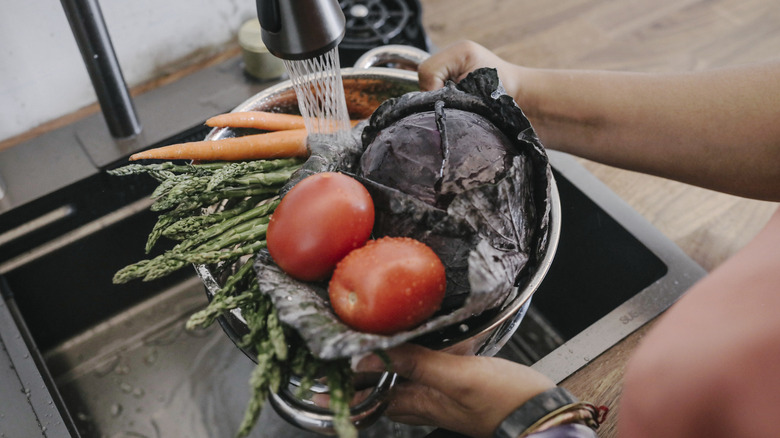Washing Fruit May Not Be Enough To Remove Pesticides, Study Finds
There are a few rules for cleaning fruits and veggies after bringing 'em home from the grocery store. Always wash produce before peeling it to reduce dirt and germs, but never wash it before storing. There's even an appropriate water temperature for getting produce squeaky clean (it shouldn't be more than 10 degrees cooler than the food being cleaned). But, according to new study findings published by the American Chemical Society, washing fruits and vegetables might actually not be enough to prevent consumers from ingesting pesticides (yikes).
Researchers arrived at this conclusion after developing a highly specialized form of produce testing called surface-enhanced Raman spectroscopy (SERS), which uses metal nanoparticles and a Raman laserbeam to detect the presence of chemical molecules on the surface of fruits and vegetables. Effectively, the laser can be pointed at farm-grown produce, and the metal nanoparticles will form different patterns depending on which chemical compounds are present. When used to examine an apple, the SERA analysis detected the presence of pesticides on the peel of a washed apple that also extended deeper into the outer apple pulp.
So, if rinsing alone is insufficient to remove pesticides, what do the researchers recommend? Peeling. Although, this isn't a perfect solution, either, as fruit and vegetable peels are loaded with nutrients and contain higher amounts of vitamins and minerals than peeled produce. To avoid excessive pesticide consumption, it might be helpful for consumers to gain a better understanding of which foods pose the biggest pesticide risk in the first place.
You should still wash your grocery haul, but consider buying organic
Some fruits are more likely to have or absorb pesticides than others. Every year since 2004, the non-profit Environmental Working Group (EWG) has published a Shopper's Guide to Pesticides in Produce which includes a "Dirty Dozen" list, the 12 types of non-organic produce with the highest concentration of pesticides. Using data gathered by the USDA, this year's 2024 report pulled from 47,510 samples of 46 fruits and vegetables and concluded that 75% of non-organic produce in the U.S. currently carries a detectable degree of pesticide residue.
Per the report, strawberries, grapes, peaches, apples, cherries, and blueberries were some of the fruits most likely to be contaminated with the highest concentration of chemical pesticides. By contrast, avocados, pineapples, papayas, kiwi, watermelon, and mangoes, among others tested low for pesticide content.
According to the EPA, over time, exposure to certain pesticides can irritate the skin and eyes, disrupt human hormone systems, or even affect nervous system function. Still, as the EWG notes, the risk of chemical pesticide ingestion, even in non-organic produce, doesn't outweigh the health benefits of eating a diet rich in fruits and vegetables. Buying organic is another way to bypass many of the harmful chemicals employed in modern agricultural practices.

